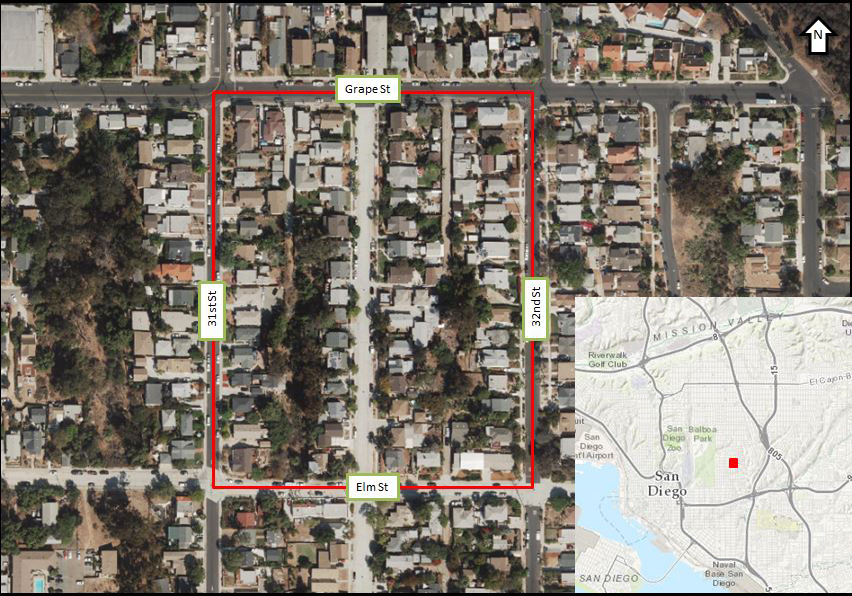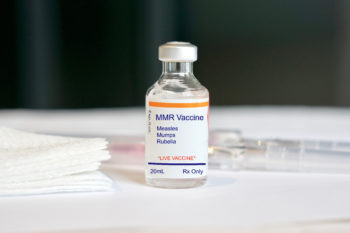UPDATED Aug. 23, 2016 at 11:00 a.m.
The California Department of Public Health has confirmed the South Park resident who developed symptoms associated with the mosquito-borne diseases chikungunya, dengue fever and Zika has tested negative for all three, the County Health and Human Services Agency said Tuesday. County Vector Control detected invasive Aedes adult and larvae in this neighborhood and will continue to conduct routine mosquito monitoring in the community.
Original post
The County of San Diego’s Vector Control Program plans to hand-spray a two-city block area in San Diego as a preventive measure after Aedes mosquito larvae were found in the same area as the home of a person who could potentially have a mosquito-borne illness.
County public health officials said the person recently traveled to a country where tropical mosquito-borne illnesses including chikungunya, dengue fever, and the Zika virus are active, and developed symptoms upon returning home. State officials are expediting tests to determine if the person has a mosquito-borne disease.
County Vector Control inspectors surveyed the person’s neighborhood. They found Aedes mosquito larvae nearby, and as a result, plan to spray Friday to kill any adult mosquitoes in the area in an abundance of caution to protect public health.
Adult Aedes mosquitoes can transmit tropical diseases. However, no Aedes mosquitoes have ever been found in San Diego County carrying any infections.
The County is acting to prevent mosquitoes from being introduced to any potential disease.
“Although there has not been a confirmed case of any disease in this situation, we are taking appropriate steps to minimize potential risk and protect the public’s health,” said Sayone Thihalolipavan, M.D., M.P.H., County deputy public health officer.
County Vector Control workers are scheduled to notify residents in the South Park neighborhood Thursday, and to conduct hand-spraying in the neighborhood on Friday. The affected area is bordered by Grape Street on the north, 32nd Street on the east, Elm Street to the south and 31st Street to the west.

The pesticide, Pyrenone® 25-5, poses low risks to people and pets. However, people who would prefer to avoid or minimize their exposure to the pesticide can take simple steps:
- Stay inside and bring pets indoors if possible
- Close doors and windows, and turn off fans that bring outdoor air inside the home
- Cover ornamental fishponds to avoid direct exposure
- Rinse fruits and vegetables from your garden with water before cooking or eating
- Beekeepers and those with insects kept outdoors are encouraged to shelter hives and habitats during treatments
- You may resume normal activities 30 minutes after the treatment
Vector Control will continue to conduct trapping for Aedes mosquitoes in the area and nearby locations for several weeks.
Information about chikungunya, dengue and the Zika virus can be found on the National Centers for Disease Control and Prevention’s website.
Two types of Aedes mosquitoes — the Aedes aegypti, yellow-fever mosquito and the Aedes albopictus, Asian tiger mosquito — are not native to San Diego and don’t really like our climate. They were found in San Diego County for the first time in 2014 and 2015. To date, they have been found in relatively low numbers.
They differ from our County’s native mosquitoes in a number of ways. They not only live in people’s backyards, but also inside their homes, and can breed in a thimble-full of water.
They’re smaller than native mosquitoes, have distinctive black and white markings, are known as aggressive biters and — unlike our native mosquitoes that prefer to feed between dusk and dawn — like to bite and feed during daylight hours as well.
County officials reminded the public that they can protect themselves from Aedes and native mosquitoes by following the County’s “Prevent, Protect, Report” advice.
Prevent mosquito breeding
Dump out or remove any item inside or outside of homes that can hold water, such as plant saucers, rain gutters, buckets, garbage cans, toys, old tires, and wheelbarrows. Mosquito fish, available for free by contacting the Vector Control Program, may be used to control mosquito breeding in backyard water sources such as unused swimming pools, ponds, fountains and horse troughs.
Protect yourself from mosquito bites
Protect yourself from mosquito-borne illnesses by staying inside when most mosquitoes are most active, at dusk and dawn. Wear long sleeves and pants or use repellent when outdoors. Use insect repellent that contains DEET, picaridin, oil of lemon eucalyptus, or IR3535. Make sure screens on windows and doors are in good condition and secured to keep insects out.
Report possible mosquito activity
Report if you are being bitten by mosquitoes during daylight hours, or if you find mosquitoes that match the description of Aedes mosquitoes by contacting the Vector Control Program at (858) 694-2888.
For more information about mosquito-borne illnesses virus, go to San Diego County’s “Fight the Bite” website.





